Quick Chat
with you!
You have our ear and we can't wait to hear about your idea! Share your details here and we will make sure to schedule a coffee date with you soon.
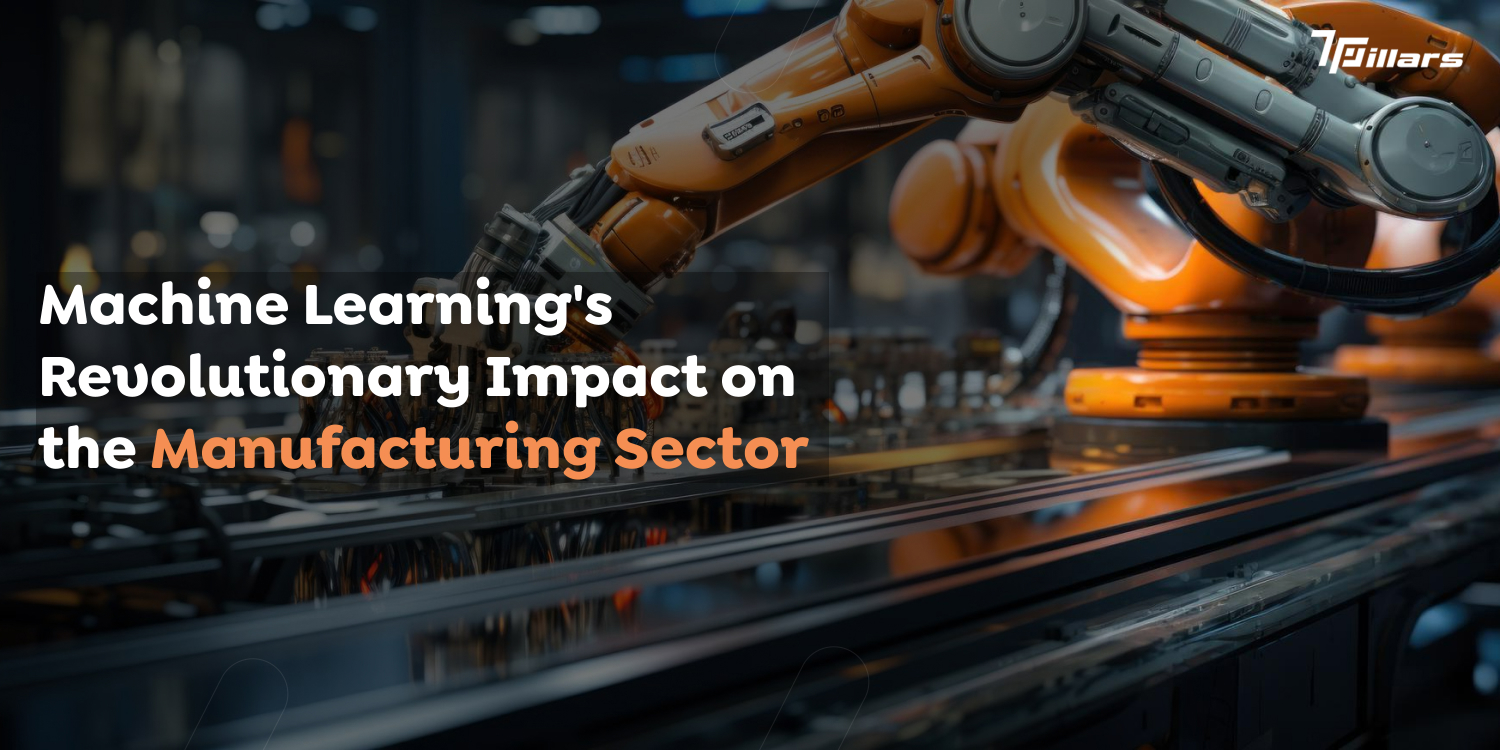
The manufacturing industry is no exception, and the concept of machine learning in manufacturing is the epicenter of this change. In a sector that relied for years on conventional business solutions, on what could be traditionally incorporated and operated effectively, it is only now that the application of technologically sophisticated data-driven solution-enabling concepts, including machine learning app development, is starting to create new opportunities to achieve productivity increases in product and service quality and innovation.
This is not the same as machines as tools; today, machines are components of Collaborative Intelligent Systems that can acquire data and use it to make decisions that enhance productivity.
Today, through machine learning and manufacturing, the production line attempts to prevent an asset’s failure by predicting when it is likely to fail rather than having machines fail and then undergoing lengthy repair procedures.
Still, it is also improving the supply chain since it can utilize SC data and Get data in real-time for inventory, demand planning, and even delivery vehicle tracking. In addition, ML scenarios are being implemented in mass production facilities to identify abnormalities and flaws in a product in record time, thus reducing the manufacturing of substandard products with high return rates.
But what is it? Well, the ramifications are far from short-lived and traveled far. Machine learning in manufacturing enables manufacturers to achieve new possibilities of customization and flexibility. From creating custom products to fitting the production line to the variable customer demands of the market, ML can analyze big data in real time and make quicker, more accurate decisions than ever before. Value addition is essential to remain relevant in the market as market requirements keep changing with a lot of dynamism.
Due to the advancement of manufacturing processes that involve automation and digitalization, machine learning and manufacturing plays a vital role in manufacturing. If manufacturers are to succeed in this new age, they don’t merely have to adapt to ML as a fad but as a requirement. The day when machine learning is used in manufacturing is no longer a question; it is when businesses will be able to leverage the potential of this method. The manufacturing of the future is intelligent and adaptive, and it is all because of machine learning.
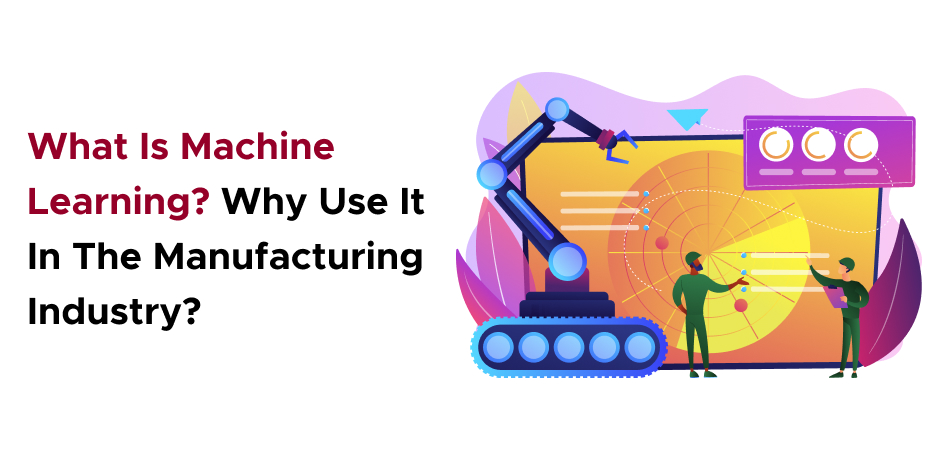
Artificial Intelligence, or more significantly, Machine Learning (ML), is the type of Artificial Intelligence that enables an item to make decisions concerning data without prior programming. It encompasses creating models to analyze information, make conclusions, and make decisions. Due to the nature of using large amounts of data, ML allows machinery to “learn” from it and improve performance and reliability.
To this extent, machine learning is one of the trends in the manufacturing industry. It aids in controlling plan activities, increasing the efficiency of numerous processes, and minimizing cost. With the help of data collected from sensors, machines, and production lines, ML can identify tendencies that will lead to equipment failure and schedule maintenance in advance. The former minimizes on occasions when systems are down, hence shortening the time taken to perform tasks efficiently.
Furthermore, it is essential to admit that machine learning and manufacturing improves quality in manufacturing because it detects the problem, defect, or anomaly whenever it appears. During product manufacturing, the machine learning application can also perform checks on the data collected and identify flaws that have not yet reached the advanced stages of production. This leads to better-quality products that are less likely to be faulty.
On the same note, supply chains also benefit from using machine learning. They use current and real-time data on inventory, the supply’s shipping routes, and demand to generate and implement ML predictions of future supply demands and optimize production schedules to minimize waste. By making accurate sales forecasts, the manufacturers can apply appropriate efforts to utilize resources, reduce excess spending, and adequately satisfy the customers.
Since harnessing machine learning’s full potential is still challenging for manufacturers, they can rely on machine learning app development companies. These specialized firms assist in developing new ML apps that easily fit into existing structures. Australian app development services are beneficial as they present concentrated services for companies intending to optimize their manufacturing use of machine learning.
Manufacturers can unlock the true potential of machine learning through the right Android app development company and machine learning app development services in Australia, driving efficiency, reducing costs, and staying ahead of the competition in this increasingly digital world.
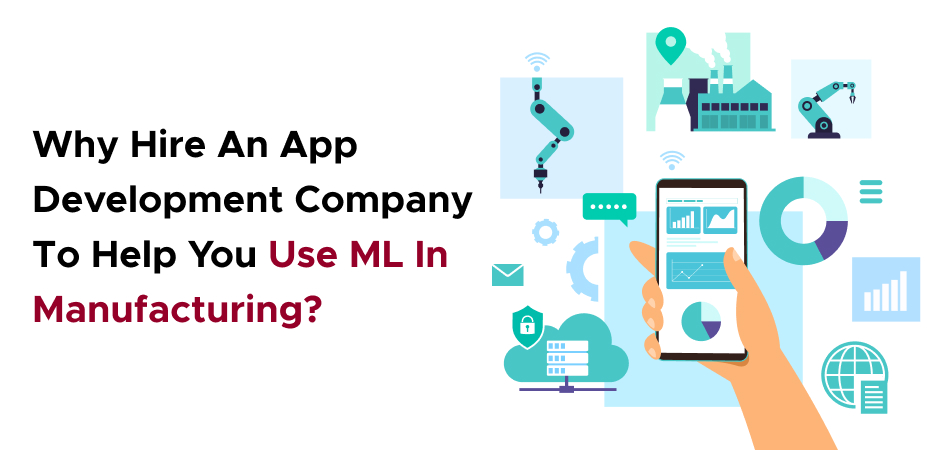
Australia’s manufacturing industry is experiencing rapid machine learning in mobile app development or ML development across its value chain, with massive leaps in achieving efficiency, innovation, and cost optimization goals. Recent statistics highlight the rapid adoption of this technology:
The global machine learning in mobile app development is expected to reach $15.44 billion by 2020 and $99.16 billion by 2026; Australia’s manufacturing sectors are expected to increase this market significantly. Factories in Australia are proceeding with the gradual skilling of ML in the manufacturing context to create a fabrication workplace of the future.
A survey conducted by the Australian Industry Group in 2023 has shown that 40% of manufacturers have benefited from improved operational efficiency through ML, with predictive maintenance and supply chain management being specific applications.
Accenture explored this topic and published a report stating that 80% of manufacturers using AI and ML technologies in Australia witnessed a reduction of costs by up to one-fourth, mainly in terms of energy consumption, downtime, and material wastage.
In 2022, 30% of Australian manufacturers are reported to have integrated AI and ML into their supply chain, while 50% are expected to follow suit in the next three years, demonstrating a growth trend in the sector.
These statistics point to the present and prospective directions for how machine learning in mobile app development is set to revolutionize manufacturing processes.
Machine learning (ML) is steadily shifting the mode of operations in manufacturing industries by enhancing industrial operations and lowering the overall manufacturing cost. In the case of ML technologies, manufacturers get the means to analyze tremendous volumes of data, helping them make sound decisions promptly. Below are the key ML technologies revolutionizing the industry:
The most effective, and perhaps the most prominent, of these technologies is the application of machine learning in manufacturing through predictive maintenance. Equipment maintenance can be done before it breaks down using sensor data and previous records as information relays. This technology enables manufacturers to conduct maintenance work preventively so that there is minimal or no equipment downtime, costly repairs are eliminated, and tool life is enhanced. Therefore, it reduces operational costs and guarantees productivity, making it reach its goals continually.
Machine learning in mobile app development ensures quality control is performed in real-time by analyzing production data to determine defects or variances. Automotive applications of computer vision systems based on ML enable a vision application to inspect the manufactured products in the assembly line for surface flaws that can be unnoticed by human observers or for other discrepancies in the product’s shape, size, or even functioning. This eliminates the production of substandard products with excess material, increasing production processes’ efficiency.
Indeed, the application of ML is central to improving supply chains based on information forecasting from various sources pointing at inadequate supply. Organizations benefiting from this principle manage working capital efficiently, decrease inventory holdings, and enhance delivery time. As a result of using machine learning in mobile app development for forecasting, manufacturers can work more effectively to cut costs and improve the level of satisfaction among clients.
Robotics as a technology and automation in production has its foundation in machine learning and manufacturing. With the help of ML algorithms, robots can work with high accuracy and learn from their surroundings and what is given to them. These intelligent robots increase production operations’ efficiency, reliability, and security. Robots powered by machine learning are critical to reinventing production lines, from joining operations to packaging and materials handling.
Through computing, data on temperature, pressure, speed, and many other variables can be immediately analyzed by optimizing ML and manufacturing processes. These parameters can be varied to aid optimal work; algorithms can regulate them. This optimization reduces energy consumption costs, avoids resource and time wastage, and provides the best quality product.
Computer vision is used in manufacturing to check and ensure that the quality of the products being manufactured is optimal. It can track the equipment and notify before a failure occurs. This is one of the most significant benefits of adopting AI within the manufacturing space, as it can inspect packages for improper labeling, among other defects. Algorithms can adjust these parameters automatically to achieve the most efficient operation. This optimization reduces energy consumption, minimizes waste, and ensures the best quality product is produced with fewer resources.
The design and engineering team uses machine learning in manufacturing industry digital twins to develop a virtual model of an existing or new physical asset. This enables real-life processes to be performed by imitating an actual model without undertaking the expensive process of creating a physical model. Also, it guides manufacturers on the proper order of business by product lines to facilitate less idle time and enhance production for wiser decisions.
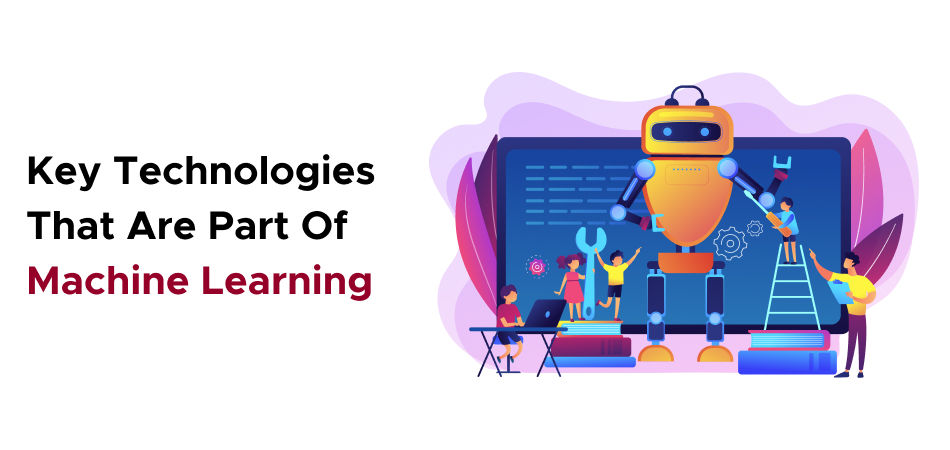
The promising Nature of Business machine learning (BML) technology matches economic potential across various sectors, from manufacturing to healthcare and technology. ML employs complex algorithms that are encouraged by using vast data sets to improve overall performance, bring innovation, and cut costs. Here are some of the primary uses of machine learning that are revolutionizing businesses and giving them the edge they need to improve operations, decision-making, and the customer experience in most industries:
In terms of advancement, they concluded that efficiency increases by improving operations by automating certain activities, minimizing human error, and increasing speed. For example, the recurrent use case in manufacturing includes predicting upkeep, quality regulation, and production scheduling. This, in turn, improves operational performance.
It’s important to note that companies can use specific automation solutions that meet certain requirements when choosing an appropriate Android mobile app development company in Australia. However, by helping implement these applications effectively, Australian machine learning application development company providers ensure that they integrate coherently, thus resulting in business processes completed on time across various industries.
Big data analysis for concealed patterns and trends as part of the responsible decision-making process is also known as machine learning in manufacturing industry. These realizations help businesses enhance tactics, use assets, and advance development. Working with a dedicated machine learning app development company in the ML industry guarantees that the solutions are properly optimized to harness the available data for the best results. The machine learning app development services in Australia create easy integration; thus, companies can use the insights effectively to optimize their operations.
The advancements provided by ML are most decisive for personalization, where it contributes significantly to e-commerce applications and customer services. With the help of customer data, ML can suggest specific products and develop targeting advertising and consumer-oriented interfaces. This, in turn, increases customer satisfaction, loyalty, and therefore sales.
Cooperation with an app-developing company allows businesses to develop individual ML solutions. Australia offers machine learning app development services for creating new customer-centric applications that provide competitive advantages for companies that consistently meet evolving client demands.
Signs and concerns of the future: one of the main advantages of utilizing ML is the probability prognosis. Structures can use analytical information to predict future velocities, customer needs, risks, and threats. To do so, organizations require predictive capacity to reduce uncertainties and related risks in planning.
Businesses can develop custom predictive solutions when cooperating with reliable machine learning app development companies. Today, companies in Australia can order machine learning application development company, including implementing a predictive analytics solution for minimizing risks in an organization’s decision-making process in an uncertain environment.
Machine learning development is conducive to competitive advantage since it promotes innovation and efficiency in operations. Through ML, businesses can improve their products, services, and productivity and stand out from other operators in today’s market. Working with a machine learning app development company in Australia focusing on the ML direction allows businesses to remain market leaders by developing modern solutions.
Moreover, professional services for developing Australian applications enable companies to create individual solutions for machine learning, which will further entrench them in their respective industries and help them overcome rivals.
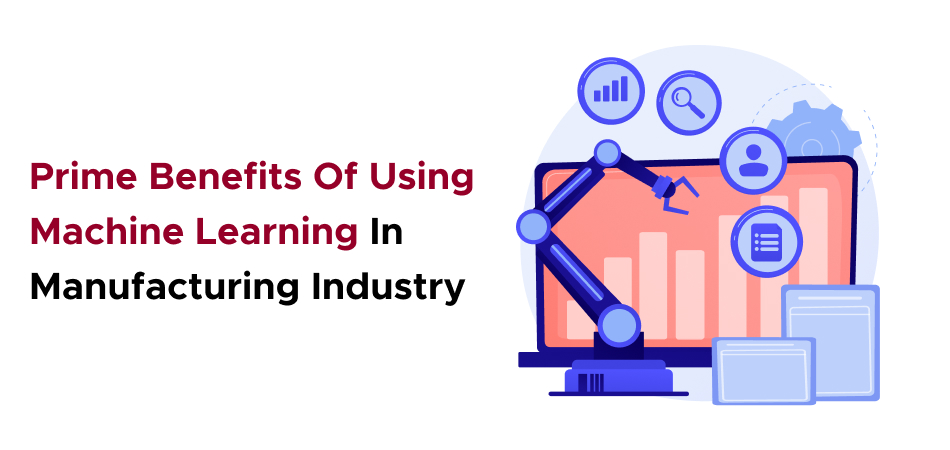
Machine learning (ML) is a game-changer in the manufacturing industry, enhancing productivity, cutting costs, and migrating toward innovation. The following are the ten most popular and promising applications of ML that are in the process of changing manufacturing:
Predictive maintenance works in Machine learning algorithms, where machinery is analyzed to discover possible failures in the future. These help minimize time when equipment is out of use and increase equipment’s useful life.
Speaking of the benefits of collaboration with a respected machine learning app development company, manufacturers can launch custom ML solutions that predict and prevent maintenance issues for smooth operation—Australian machine learning app development services target to develop bespoke predictive maintenance applications depending on the manufacturing plants’ requirements.
Predictive machine learning models predict defects and variations from the quality requirement during manufacturing. Manufacturers can prevent real-time faults by leveraging computer vision and data analytics and reducing faulty output. A competent Android mobile app development company can then create quality control applications based on machine learning in manufacturing industry to support production. A respected Australian machine learning app development company can help incorporate these solutions into the production lines effectively by harnessing the power of ML solutions.
ML applies in this area by analyzing previous records to determine demand, allowing adequate stocking and successful delivery arrangements. When a manufacturer hires a reliable machine learning app development company, they can design tailored applications that must feature live updates for the supply chain. Manufacturing companies can use machine learning app development services in Australia to embrace factories’ ML technologies for improved forecasting and customer experience, minimized wastage, and efficient resource utilization.
Machine learning in production algorithms can forecast and determine the most exhaustive options for production from the available workforce, machines, and demand. This optimizes resource utilization and enhances the system’s general throughput. A reputable iPhone app development company can create applications that design specific production scheduling solutions that use ML. The scheduling systems are developed for business applications, and a machine learning application development company in Australia assists in linking the systems to other business functions.
AI is also behind the creation of complex robotic solutions in society. Robots’ ability to learn from the operating environment, learn new duties and tasks, and continuously adapt makes them useful in operations that require machine learning in manufacturing algorithms. Services for app development in Australia will enable businesses to incorporate the idea of using ML-driven robotic systems for the assembly, packaging, and handling of materials. Working with an app development firm guarantees these robots are synchronized to run efficiently and fulfill particular production requirements.
Modern ML methods apply to control the use of energy resources, where information from machines, the environment, and production is collected and analyzed. This reduces energy consumption, and hence, reductions in costs are realized. Manufacturers can liaise with app development firms to develop specific applications for energy management that include ML algorithms. Manufacturers in Australia can avail of services such as app development to help them achieve the highest sustainability by applying efficient data solutions.
Signals via the Production Execution EA are continuously fed into the ML models to adjust real-time parameters, such as temperature, pressure, or speed, based on the data captured. These optimizations improve the product and eliminate unwanted things. Engaging a competent iPhone app development company helps manufacturers incorporate machine learning models into the process control systems. ML development services in Australia primarily focus on reliable machine learning application development to increase production rates and output quality.
Through training the data collected, the ML models can estimate the probable future demand for the product, and the producers can adjust the production ratio. This enhances stock control and inventory, enabling businesses to meet market requirements. Integrating ML-driven demand forecasting models with a manufacturer’s help from a commendable iPhone app development company is possible. Australian-based machine learning application development services can offer solutions that make a business’s forecasting more precise and help it stay ahead of its competitors.
Generative design uses machine learning, which develops customized products based on specific customer needs. Based on the analyzed design parameters, ML algorithms generate an optimal product design that is readily manufacturable. Partnering with a respected iPhone app development company allows manufacturers to create ML-powered design tools that can fit into the production process with these machine-learning app development services in Australia for more personalized and efficient design development.
Workflow automation through ML ensures more efficient tasks as manual interference is reduced and jobs are optimally distributed. Using ML, workflows can easily detect bottlenecks and inefficiencies in workflows to be adjusted immediately. Through collaboration with a UI UX app development company, manufacturers can create workflow automation solutions that are specific to their needs, utilizing the potential of ML. An Australian app development service develops apps that seamlessly integrate workflow automation with the existing systems to maximize productivity.
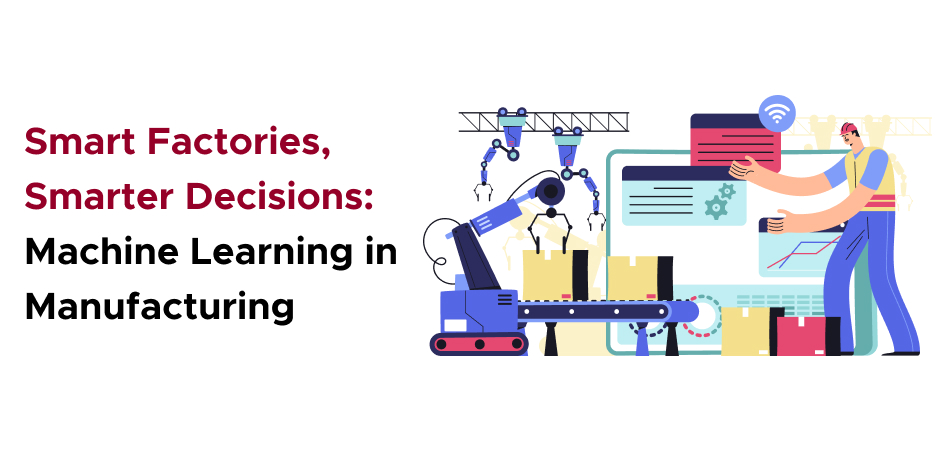
It has become evident that machine learning (ML) is transforming different manufacturing industries by improving production lines, ensuring product quality, and cutting expenses.
The primary application of machine learning in production in the automotive manufacturing sector involves predictive maintenance, which involves the complex observation of components like oil, tire pressure, and engine temperatures to determine possible complications. Other applications of Artificial Intelligence technology in supply chain management also foster generative design, which designs vehicles based on given parameters. Also, object recognition is applied to quality assurance to guarantee no defects in the parts being manufactured and to improve the manufacturing process.
Machine learning applications in electronics manufacturing include increased accuracy in defect identification and improved assembly lines. Monitoring systems enhanced by ML help prevent problems such as overheating in circuit boards in real-time. Automated optical inspection (AOI) involves using a vision system to inspect specific Production lines with a high possibility of faulty printed circuit boards (PCBs).
Machine learning in production has revolutionized yield prediction, food quality, and sorting in food production. Historical and environmental data are used to build ML models that improve plant scheduling and productivity. Further, it entails computer vision when packaged food is not of high quality, hurling it out of the packaging system to ensure high-quality foods.
In the pharmaceutical industry, machine learning’s benefits in manufacturing enhance speed and provide drug compliance. Machine learning gathers and analyzes data to recognize possible medications and predict drug characteristics. It also helps identify the right candidates for clinical trials and estimate how the human body will metabolize new drugs and at what rate, helping to lessen development time.
In aerospace manufacturing, ML is used in equipment monitoring, intricate assembly, and safety issue identification. The given method uses inactivity analysis to discover equipment failures more often, reducing their time. Their use also enhances the mapping of factors such as the airfoils, the position of the engines, and the wing loading of the airplane.
In textile production, machine learning enhances the accuracy of weaving and detects defects in the fabric at an early production stage. Pattern recognition and color matching technologies, powered by ML, improve the design and quality of fabric production. Also, ML plays a role in demand predictions, thus enabling manufacturers to produce more products that meet fashion requirements and customer needs, among other things.
ML in manufacturing improves operational output, cuts costs, and fuels innovation, making the idea appealing to the industry. However, integrating ML into the production lines involves a systematic and phased plan. Here are some tips for integrating machine learning into your manufacturing business.
To that extent, the first process of adopting machine learning in production is determining the business challenge to address. Whether it is enhancing maintenance prediction, supply engineering, or even quality check and assurance, it is helpful to possess an aim. That is where a UI/UX app development company comes in, helping you get machine-learning solutions designed to suit the specifics of your manufacturing problems.
Machine learning centers on data. Pre-cleaned and pre-formatted data is provided so that it can go straight to analysis. Consult an IoT app development company to design efficient data channels through which data for developing ML can be gathered and stored efficiently. Outsourcing app development services can help you find data integration services in Australia that will enable a smooth data transfer from your machines into your analysis systems.
Choosing the correct machine learning algorithm is determined by your problem type. Supervised learning is used in defective parts detection, while unsupervised learning is used in anomalous parts detection, but which model to select remains crucial. Australian machine learning app development services can help you choose and use the best algorithms to support your business’s needs.
After preparing the data and choosing the correct algorithm, the following process is to train the machine learning in the production model. The model takes information from previous data feeds and improves its pattern of predicting the result. When you work with an app development firm, you can have the training process delivered efficiently and end up with a well-founded model.
After training, the ML model must be placed in the production environment, and its performance must be continuously monitored to determine whether the model is behaving as intended. With development services in Australia, ensure your system remains optimized, which means optimal performance and improvement of operational results.
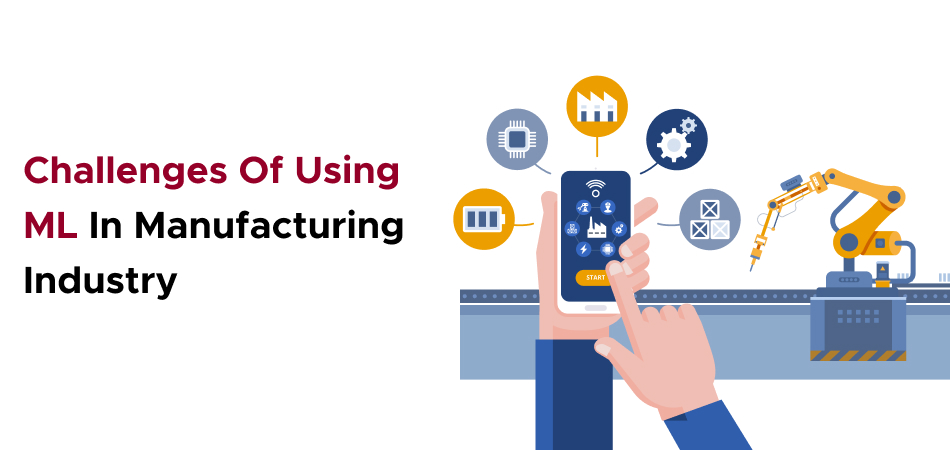
Manufacturing industries are increasingly applying machine learning (ML), a set of techniques with unique changes on the ground. However, the use of ML encounters several challenges. Some critical challenges are outlined below, and a way forward is provided.
Some of the main issues encountered when using and implementing ML are data quality and the availability of suitable training data. If quality data is not used, one gets wrong predictions and conclusions.
To this end, a business should not take shortcuts when it comes to quality data; one must develop proper means of data collection and cooperate with a reliable app development company. Aus App development services can develop bespoke use tools to integrate data, clean, and validate data.
Adopting ML in manufacturing involves various technological changes, training, and equipment investment.
While significant capital expenses might be involved, they are easy to introduce to a company with a beginning of marginal and experimental uses of ML. An appealing IoT app development company will ensure that the ML solution can be scaled with the company, which will also cut future costs.
Currently, there is a scarcity of talent with domain knowledge in manufacturing and AI to address the complex issues surrounding system handling.
Outsourcing app development services in Australia means contacting specialists experienced in developing appropriate ML solutions, filling the gap in the manufacturing process, and unlocking the benefits of machine learning in manufacturing.
Machine learning (ML) is now at the basis of a complete revolution in the manufacturing industry, allowing companies to improve the performance of production lines, minimize expenditure, and increase outcomes across the board. From eliminating mundane tasks, thereby preventing workforce exhaustion, enhancing the maintenance algorithms of the machinery, machines eventually reducing downtime, and real-time quality checking to ensure that only quality goods make the market, ML is revolutionizing manufacturing in ways that were once could only be dreamt of.
This allows companies to make accurate decisions on resource management, improve the supply chain, and adapt to customer needs. In addition, the benefits of machine learning in manufacturing also encourage innovation, so manufacturers can use new technologies such as robotics, generative diagrams, or autonomous systems, which were previously considered futuristic.
With ML, a company can work dynamically, guaranteeing a provider’s leadership in the constantly evolving market. However, any manufacturing firm will likely encounter challenges in implementing machine learning, such as data quality, the high costs associated with pattern recognition, and the need for skilled labor.
However, using the services of a dedicated quality assurance app development company or employing app development services in Australia can act as breathtaking obstacles, hence making the use of ML a much more viable option.
In the long run, it does not take much to see that machine learning will revolutionize the manufacturing industry. Being one of the key branches of AI evolution in the industry, ML will remain one of the leaders in determining the development path in the manufacturing sector and help achieve outstanding business results. Connect with our team at 7 Pillars, a dedicated quality assurance app development company, to assist you in building your dream app.